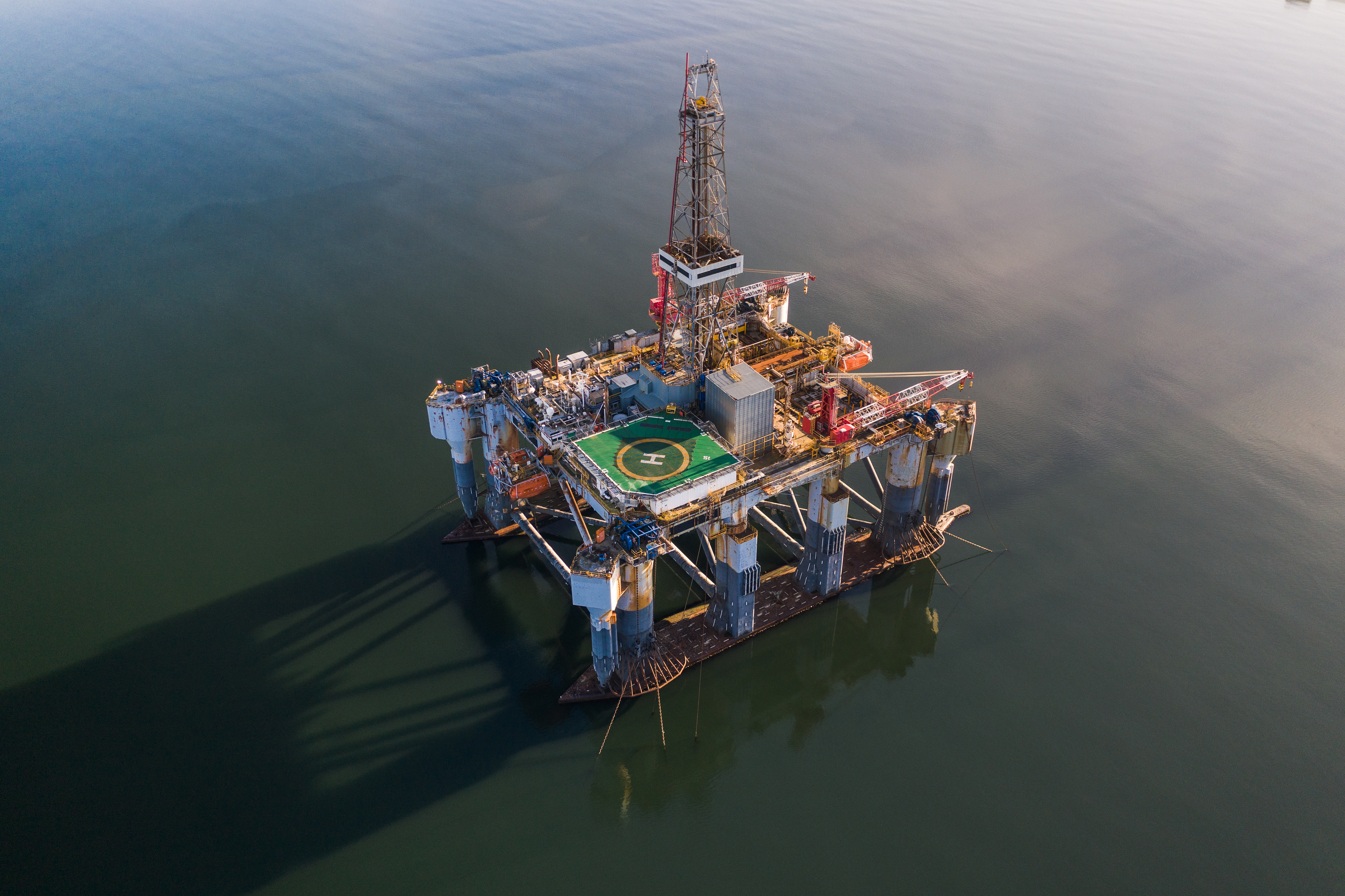5 Enterprise Mobility Solutions For Gas and Oil Field Jobs
With rapid advancements, rugged enterprise mobility solutions in the oil and gas industry are helping companies improve processes, enhance productivity, increase efficiency, and improve worker productivity and safety.
Enterprise mobility describes a work approach that finds employees using tablets, laptops, and smartphones to do their jobs from anywhere. Enterprise mobility solutions have a profound impact on how organizations of all sizes and industries operate in an age defined by digital transformation. The use of mobile technology — facilitated by rapid advancements in technology and a continuous stream of new rugged devices and applications — can help oil and gas companies improve processes, increase efficiency, and improve worker productivity, among other benefits.
Frontline workers in the oil and gas sector, sometimes called roughnecks, roustabouts, or deskless workers, are essential in the successful operation and maintenance of oil rigs, drilling sites, pipelines, and other oil and gas infrastructure. However, the role of these oil and gas workers is changing as the industry invests in generative artificial intelligence (AI), the Internet of Things (IoT), cloud-based software, drones, and other technologies to improve efficiency, collect better data, and control costs.
Additionally, the next generation of applicants to oil field jobs want employers that empower them with technological capabilities, according to Oil and Gas IQ. After all, even the best oil and gas technology investments aren’t much good if deskless workers can’t access them. Oil field, rig, and pipeline workers must be equipped with mobile technology that enables real-time access and reliable connectivity for oil and gas companies to fully benefit from the technology investments they’ve made.
5 Key Enterprise Mobility Solutions in the Oil and Gas Industry
In CIOReview, GE’s Oil and Gas CIO discusses how technology is reshaping the sector, but admits that the “oil and gas industry has often lagged behind other industrial sectors” in adopting technologies like IoT and cloud-based solutions. This puts the sector in a great position to be able to leverage the value of mobility to increase efficiencies and reduce costs.
Here are five ways oil and gas companies can use rugged enterprise mobility solutions to achieve these goals, and more:
1. Leverage real-time field data in the cloud
The rise of 5G networks allows continuous real-time access to analyzed data from comprehensive oilfield IoT sensor networks and systems via mobile devices, allowing operators to react quickly to environmental changes. According to World Oil, 5G technology offers significant advantages for oil and gas operations, such as:
- Faster, more reliable data transfer.
- Improved remote monitoring of even more connected devices.
- Better safety through remote operation of equipment in hazardous areas.
- Lower maintenance costs and reduced downtime.
- Improved collaboration via video conferencing and other collaborative tools.
2. Minimize operational downtime
The oil and gas industry relies on offshore rigs that are nothing short of self-contained cities that operate 24/7/365. Onshore rigs operate on the same demanding schedule, with pipeline workers often finding themselves in untamed terrain. With the enormous investment in the discovery and production of oil and gas, rigs must operate around the clock and unplanned downtime is unacceptable.
Using mobility solutions for oil and gas, companies can better manage essential business communications. Rugged laptops help workers monitor and maintain highly complex operations, use dashboards to make continuous operational improvements, and connect remote crews to the important people in their lives.
When selecting a vendor, oil and gas companies should look for a provider that can offer rugged hardware that will offer:
- Deployment services that ensure the rugged devices have everything they need installed before shipping out to a rig.
- Rapid turnarounds for device repairs.
- Field engineering services both on-site and remotely to support any use case.
- Enterprise mobility solutions to keep devices secure and up to date from anywhere.
3. Manage field data with rugged laptops
Consumer devices aren’t well-suited for oil and gas work. Using rugged laptops and tablets ensures that workers have mobile devices engineered to handle the dynamic conditions of oil pipelines, refineries, and rigs. Simply put, rugged computers last longer, fail less, and have a lower total cost of ownership.
Also, like many other industries, oil and gas continues to grapple with paper-based, manual processes that inhibit efficiency and hinder collaboration across the enterprise. Using rugged mobile devices, employees working out in the field can better manage data capture and validation, and then share that critical information with other departments and users from anywhere without worrying about device failure.
For example, geologists and geophysicists equipped with rugged laptops or tablets can quickly and accurately input, probe, and analyze data. They can also use the devices to generate real-time 3D models and more accurately locate underground reservoirs of oil and gas. Field employees can also use rugged tablets to detect temperature anomalies while doing safety rounds in facilities or along pipelines.
4. Connect geographically dispersed crews with rugged devices
Communication is key in oil and gas operations. By connecting the back office to the field in a two-way dialogue, rugged mobile devices allow field workers to receive and request guidance based on the actual conditions of whatever is in front of them. Additionally, supervisors can track the location of oil and gas workers and get important updates like production data in real time.
Even better, with the rise of technologies like video conferencing and augmented reality (AR), field crews can use reliable rugged mobile devices to connect with experts back at the office for help or advice on operations, maintenance, and repairs in real time.
These devices also help improve the employee experience, which can be a boon for retention in an industry that struggles with a labor shortage. Oil and gas workers often spend weeks or months at remote job sites. The more reliable connectivity offered by rugged laptops lets employees stay in touch with loved ones, which can reduce the fatigue that comes from being away from home.
5. Create a safer, more secure work environment
Mobility solutions do more than just save operators time and improve productivity. They also provide a digital system of record that helps limit safety incidents by granting employees access to data in real time, according to IMEC Technologies.
“With mobile technology, oil and gas companies can improve their workflow efficiency with the ability to make decisions faster and respond to incidents or accidents quicker,” it continues, “ensuring that the correct people are alerted once an incident is reported.” This, in turn, helps oil and gas companies create a safer work environment for employees while also protecting valuable property and equipment.
Choosing the Right Enterprise Mobility Solutions
Out in the field, mobile devices, tablets, and rugged laptops help oil and gas workers quickly and effectively communicate with supervisors and respond to potentially serious incidents. They also play a critical role in functions like location tracking, inspection, asset management, surveying, and environmental assessments.
For the best results, oil and gas companies should invest in purpose-built, UL C1D2-certified rugged devices that can withstand drops, extreme temperatures, dust, and liquids. Other key attributes to look for when investing in mobility solutions are displays that can be easily read under direct sunlight in the field, long battery life, and screens that can be used by workers who are wearing gloves.
“For oil and gas, [the] end user is the field worker and they need apps that provide easy access to information, to make better decisions in the field,” Rigzone reports. “Decisions that will make them more efficient, allowing them to do more, and decisions that will maximize production, elevating the company as a whole.”
Visit our oil and gas solutions page to learn more about how oil and gas companies are approaching digitization for their mobile workers.
![]()


